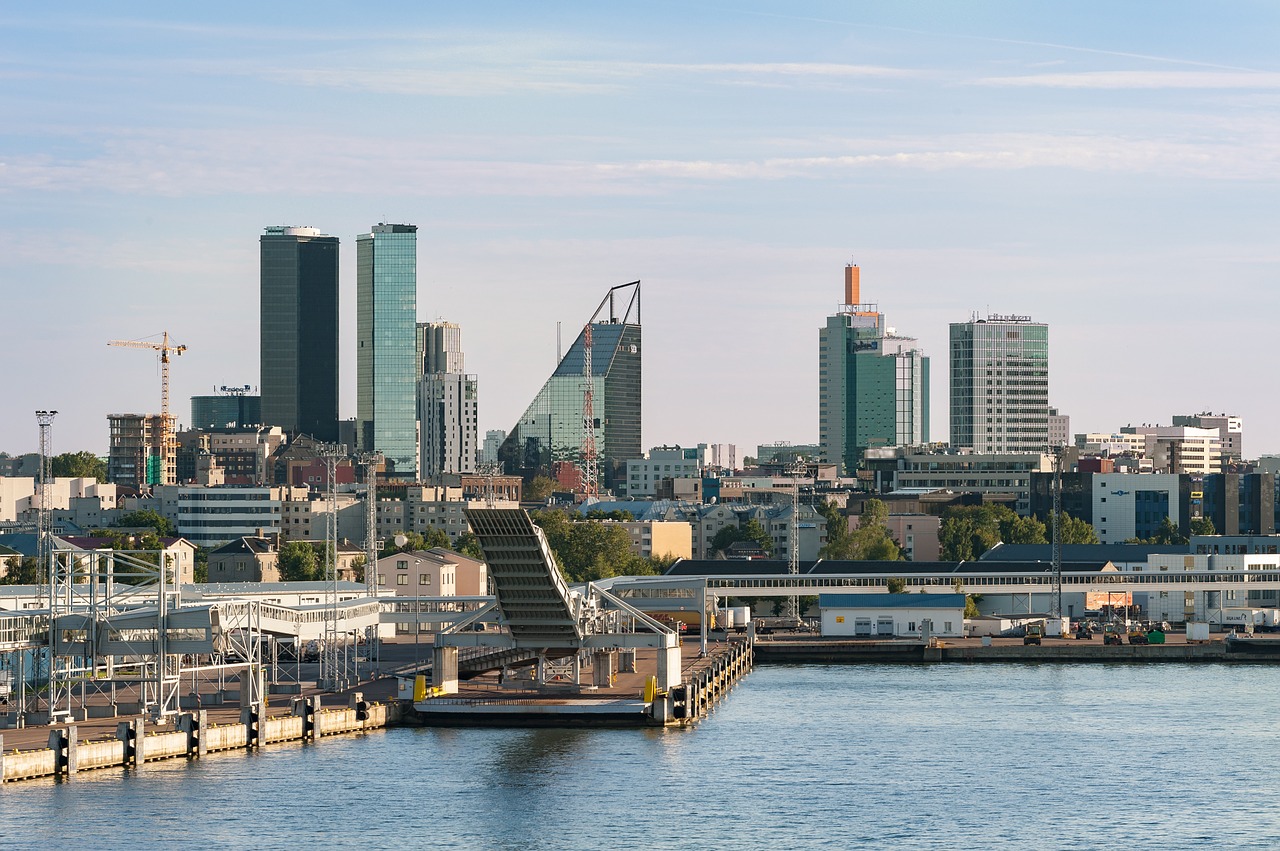
Estonia elects a new parliament on Sunday. In the election campaign, there was a duel between the reform party and center party – already the victorious party can expect higher pressure from the right, the right-wing parties receive significant support, as recent polls show. This is remarkable: after all, emigration is much more of a problem than immigration.
Indeed, the northernmost Baltic republic, proud of its pioneering role in eGovernment and playgrounds for companies from Sweden and Finland, is struggling with the emigration of well-educated young people and thus potentially skilled workers. In general, it is a problem of all the Baltic countries, but even the innovative attitude of Estonia does not help.
At the same time, the country has seen increased immigration since 2015 – a circumstance that ended the population decline that has been going on for years. Between 2007 and 2015, the population had fallen by 10,000 people – a not insignificant decrease, especially since Estonia has only about 1.3 million inhabitants, 880,000 are eligible to vote.
Right-wing populists in focus
The country is not confronted with illegal immigration. Nevertheless, right-wing parties can count on the election, especially the right-wing populist Conservative People’s Party (EKRE). Recent polls predict her 18 to 20 percent. Dangers become an EU-critical and asylum-hostile course. In particular, the ideas on EU refugee distribution were targeted. EKRE also opposes the adoption rights of same-sex couples, and marriage should be more clearly defined in the Constitution.
EKRE is led by Mart Helme and his son Marin Helme – they perform public appearances generally in pairs. The chairman of the party’s junior staff, Ruuben Kalep, caused a stir. He acknowledged that he wrote articles with fake accounts in social networks. Kalep admitted that other members of the young party wing had acted that way. All relevant parties refuse to cooperate with EKRE to date.
Whirl over poster
So does the newly founded Estonia 200, which sees itself as a political start-up. Surveys have forecast Estonia 200 seven percent ahead. Support comes from some entrepreneurs, after all, a lean state is at the top of the agenda. The change of the former editor-in-chief of the largest daily newspaper „Postimees“ into the party caused a stir.
Officially, Estonia represents 200 social liberal contents, but the party made headlines with a provocative campaign. At a central stop in the capital Tallinn, a poster called on travelers to divide into two waiting areas: one side for Estonian-born and the other side for Russian-born persons. The party referred to the need for discussion on this issue, other parties were dismayed.
Head-to-head race for first place
However, two other parties are competing for the victory: According to polls, Prime Minister Jüri Ratas of the Center Party, who has been in office since a flying coalition change in November 2016, has long enjoyed slight advantages in remaining in office. Only last week, however, indicated a trend reversal in favor of the right-wing liberal reform party – it is in surveys at about 27 percent. The Center Party is credited with about 24 percent.
The 40-year-old Ratas, who succeeded Edgar Savisaar, the controversial long-term chairman of the Center Party, is currently ruling with the help of the Social Democrats and the Patriotic Party (Isamaa), both at around ten and eleven percent. Ratas‘ main competitor is the daughter of ex-EU Commissioner Siim Kallas, Kaja. She is the leader of the reform party, which dominated domestic politics for twelve years until 2016 and each appointed the head of government.
Tax cut in both programs
In particular, Kaja Kallas focuses on a „revolution“ in the current tax system – accusing the lead counterparty of being responsible for rising prices and unfair taxes. Their promises – especially to the middle class: tax cuts and a monthly allowance of 500 euros. The Center Party, on the other hand, focuses on family policy, pensions should rise, and – an overlap – taxes should decline. In addition, they campaign for free local transport in Tallinn, which should apply to all Estonians.
The left spectrum is again hardly in the display. Although the Social Democrats are still government partners, losses are expected. Scarcely any chances of entry are given to the newly founded party Wealth of Life. Also hardly hope the conservative populists of the Free Party, currently in Parliament. Their criticism is directed primarily against the established party system, which has moved away as an elite project from the people.
Money laundering scandal overshadows topics
The topics in the election campaign were overshadowed recently by a money laundering scandal involving Danish Danske Bank and Swedish Swedbank. The focus is on the branch of Danske Bank in Estonia. An internal investigation by the institute had revealed that most of the funds raised between 2007 and 2015 through the local branch had been suspected to total € 200 billion. The money came, inter alia, from Russia and other ex-republics of the former Soviet Union.
A research of the public SVT had recently hit high waves in Sweden. In a report of the transmitter serious charges were raised against the Swedbank. About accounts of the institute are said to have been washed in the wake of the scandal at Danske Bank converted nearly four billion euros according to SVT. Financial supervisors in Sweden and Estonia launched joint investigations.
